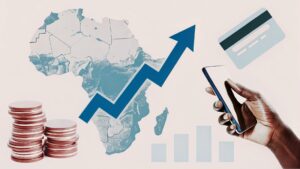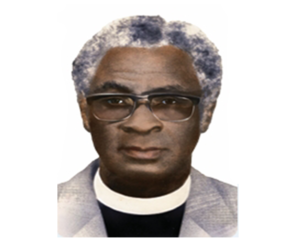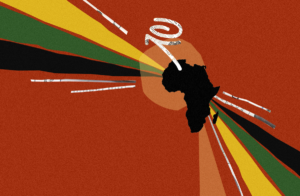Africa stands today at the center of global Christianity with a vast Christian population giving the continent a unique opportunity to become a leading force in global missions. With over 7,400 people groups still unreached, [1] the moment calls for Africa to move from being a ‘mission field to mission force’. [2] Yet, despite this spiritual vibrancy, indigenous African mission movements remain financially fragile. Most continue to rely heavily on external donors, operating with limited local support structures. However, for Africa to move from being a “mission field to mission force”, [3] must begin to mobilize its own resources to send, support, and sustain missionaries. This requires intentional investment in missional awareness, leadership, and indigenous funding strategies across denominations and local churches.
In response to this challenge, the African Centre for Missions Mobilization and Research (ACMMR), in collaboration with Kwiverr, organized a strategic seminar aimed at rethinking how missions are funded across the continent. The event emphasized a transition from aid dependency to sustainable, accountable, and locally driven support systems for indigenous missions.
Dr. Yaw Perbi affirmed Africa’s vital role in global Christianity and introduced the concept of financial discipleship, [4] as recently reiterated by Compass International that has been emphasizing a stewardship mindset that transcends both poverty and prosperity ideologies. [5] He stressed that funding African missions must not only be about raising money but also about raising minds, engaging intellectually and spiritually to reimagine the entire paradigm of mission support. The seminar was not just a space for presenting needs, but a platform for deep reflection, radical research, and innovative thinking about paradigms and practical approaches that should shape the future of African missions.
A key affirmation throughout the seminar was that the foundation for funding missions lies in biblical stewardship. Scriptures such as Psalm 24:1 [6] and Haggai 2:8 [7] emphasizes that God owns all things; wealth, resources, and the people themselves. Christians are called to be stewards, not owners. Giving toward missions is not mere charity; it is a spiritual act of obedience, rooted in a biblical mandate to support those who go out for the sake of the Gospel, as 3 John 5–8 underscores. [8] This theological grounding is essential to shifting African mission funding from occasional donations to covenantal responsibility.
Apostle Dr. Samson Dorkuno’s research, presented during the seminar, shed light on how mission agencies and churches in Ghana, with implications across the continent, should currently fund their work. The findings were encouraging yet sobering. About 61% of support comes from local donors, mainly through churches, friends, families, and small businesses. [9] However, only 19% of that support is directly from churches. [10] Even more concerning is that long-term needs, such as missionary retirement, receive only 9% of the available funds. [11] This indicates that while giving is happening, it is often short-term and insufficient to sustain the full life cycle of a missionary.
Mission awareness remains low among many Christians and even pastors. Agencies attempting to raise funds often face poor turnout or broken pledges. Denominational divisions prevent collaboration, while some agencies lack financial systems to track spending or report transparently, leading to mistrust and donor fatigue. These obstacles weaken the overall effort and highlight the urgent need for education, collaboration, and accountability.
Yet, there are clear opportunities. A majority of churches around 64% expressed willingness to increase their giving if mission agencies could demonstrate integrity and measurable impact. [12] The African diaspora also represents a massive, untapped resource. Remittances from the diaspora have surpassed foreign aid since 2010. [13] If even a fraction of these remittances were intentionally directed to missions through tithing and support structures, billions could be mobilized. Furthermore, mobile money platforms and digital giving tools are making contributions easier, faster, and more widespread.
Another innovative solution highlighted during the seminar is the integration of business into mission both as a platform for witness and as a funding mechanism. Business as mission enables Christians to use their enterprises as spaces for disciple-making, while business for mission uses profits strategically to finance mission work. Professionals serving as tentmakers earning their livelihood while engaged in missions provide another sustainable model that eases financial pressure on agencies while increasing local ownership of mission efforts.
The seminar introduced a compelling framework contrasting three mindsets: poverty, prosperity, and stewardship. The poverty mindset views wealth with suspicion and work as a necessity for survival. The prosperity mindset sees wealth as divine entitlement and often undermines generosity. The stewardship mindset, however, sees all possessions as belonging to God and views giving as a joyful act of responsibility. Embracing this mindset is crucial for transforming how African Christians approach mission support.
Accountability emerged as a critical issue. Many African mission agencies lack systems for tracking income, disbursements, and results. Without proper reporting, donor trust erodes. Every Christian present was encouraged to adopt both narrative and numerical forms of reporting acknowledging the importance of storytelling in African cultures while also ensuring factual transparency. A healthy mission structure must build both relational and operational trust.
Youth mobilization also came into focus. The future of mission funding and leadership lies in today’s children, youth, and university students. Churches must integrate mission awareness into discipleship programs early. In addition, the African diaspora must be mobilized intentionally, beginning even before departure. Pre-departure orientation that helps diaspora Christians see themselves as senders, supporters, and participants in mission can have lasting impact.
Finally, the seminar called for a redefinition of global mission partnerships. Africa must approach the future not as a dependent recipient of aid, but as a confident, equal co-laborer in the Gospel. Partnerships should be collaborative, equitable, and framed by mutual respect. African mission agencies must demonstrate competence, credibility, and courage to take their rightful place in global missions, not with begging bowls but with outstretched hands of fellowship.
In the end, there is a call for a paradigm shift from dependency to self-determination, from foreign aid to biblical stewardship, and from fragmented efforts to strategic sustainability. Africa must fund its own mission movements. The call is clear, Africa must fund its own mission movements, not alone, and to maximizing local assets, mobilizing its diaspora, and ensuring transparency and accountability in every step.
References
[1] Joshua Project, Has Everyone Heard? Available at https://joshuaproject.net/resources/articles/has_everyone_heard. [Accessed 21 Jul. 2025].
[2] Yaw Perbi, Sam Ngugi, Africa to the Rest: From Mission Field to Mission Force (Again) (Salem Author Solutions, 2022), https://books.google.com.gh/books?id=_qb4zgEACAAJ.
[4] Dr. Yaw Perbi, remarks during the “Funding Indigenous African Missions” seminar, hosted by ACMMR and Kwiverr (Zoom, July 3, 2025).
[5] Compass International – Finances God’s Way, What is Financial Discipleship?, https://compass1.org/financial-discipleship.
[6] Psalm 24:1, New International Version. “The earth is the Lord’s, and everything in it, the world, and all who live in it;” Holy Bible, New International Version®, NIV® Copyright ©1973, 1978, 1984, 2011 by Biblica, Inc.® Used by permission. All rights reserved worldwide.
[7] Haggai 2:8, New International Version. “The silver is mine and the gold is mine,’ declares the Lord Almighty”. Holy Bible, New International Version®, NIV® Copyright ©1973, 1978, 1984, 2011 by Biblica, Inc.® Used by permission. All rights reserved worldwide.
[8] 3 John 5-8, New International Version. “Dear friend, you are faithful in what you are doing for the brothers and sisters,[a] even though they are strangers to you. 6 They have told the church about your love. Please send them on their way in a manner that honors God. 7 It was for the sake of the Name that they went out, receiving no help from the pagans. 8 We ought therefore to show hospitality to such people so that we may work together for the truth.Holy Bible, New International Version®, NIV® Copyright ©1973, 1978, 1984, 2011 by Biblica, Inc.® Used by permission. All rights reserved worldwide.
[9,10,11,12,13] Apostle Dr. Samson Dorkuno, presentation at the “Funding Indigenous African Missions” seminar hosted by ACMMR and Kwiverr (Zoom, July 3, 2025).






